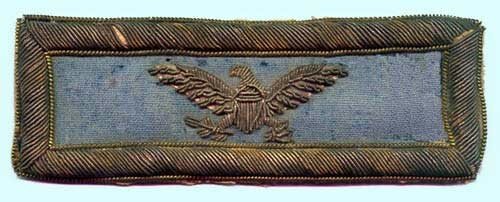22 July 2020
In most military organizations, colonel is the officer rank immediately below that of brigadier general. (Ironically, in the U.S. Army a brigade is commanded by a colonel, not a brigadier general.) Colonel is a sixteenth century borrowing from French, which got it from Italian. It would be an unremarkable etymology except for the word’s pronunciation. Colonel has an < l > that is not pronounced. Present day British pronunciation is / ˈkəːnl /, and U.S. pronunciation is / ˈkəɹn(ə)l /. Where does the / ɹ / phoneme come from and what happened to the / l /?
The word originally comes from the Italian colonnello, which is from the root colonna, or column, and a colonnello was originally the commander of a column of infantry. When the word was borrowed into French it became coronnel through a process called dissimilation. That is, when a word has a repeated sound, in this case a double / l /, the first of them will tend to disappear or change. To give another example, dissimilation is why many people don’t pronounce the first / ɹ / in February. In the Romance languages, when a word has a double / l /, the first often becomes an / ɹ /. Both / l / and / ɹ / are liquid phonemes and frequently interchange.
When colonel first appears in English it is with the < r > spelling. From a 1548 letter from Thomas Fisher to the Duke of Somerset regarding the Siege of Haddington, a battle in War of Rough Wooing (which is one of my favorite names for a war, second only to the War for Jenkins’s Ear, but I digress):
Emonge the whiche, there was slaine in the base courte a very nere kynesman of the Ringraves, who being uppon the first repulse left behind ded in the courte, certen of the worthiest Almaynes at the desire of their coronell, with a new showte eftsones approached and reentred the same, of purpose to fetche awey his said kynesman.
But in the early modern era, it was common for spelling to be altered to reflect a word’s etymology. Hence, the < b > in debt, from the Latin debitum. In the case of colonel, the < l > was reinserted in the spelling, although the pronunciation remained unchanged. We can see this a few decades later in Richard Knolles 1603 Generall Historie of the Turkes:
Amongst others of the nobilitie called to counsell, was Michaell Paleologus (of whom we haue before spoken) much superiour to the rest, as descended of the imperiall house of the Comneni, a man of a cheerefull countenance, gracious, and courteous, and withall exceeding bountifull and liberall, whereby he easily woon the hearts of all men in generall, but especially of the colonels, captaines, and other martiall men, commaunders in the armie.
This old practice of using etymology, rather than pronunciation, to guide spelling is one of the reasons that English spelling is so perniciously haphazard. But before you jump on the spelling-reform bandwagon, remember that processes like dissimilation are constantly occurring. Pronunciation is always changing and trying to keep spelling up to date with the latest changes (not to mention whose pronunciation you will use) is a fool’s errand.
Sources:
Ellis, Henry. Original Letters Illustrative of English History, third series, vol. 3. London: Richard Bentley, 1846, 295–96. HathiTrust Digital Archive.
Knolles, Richard. The Generall Historie of the Turkes. London: Adam Islip, 1603, 111. Early English Books Online.
Merriam-Webster New Book of Word Histories, 1991, s.v. colonel.
Oxford English Dictionary, second edition, 1989, s.v. colonel, n.
Photo credit: U.S. National Archives.

